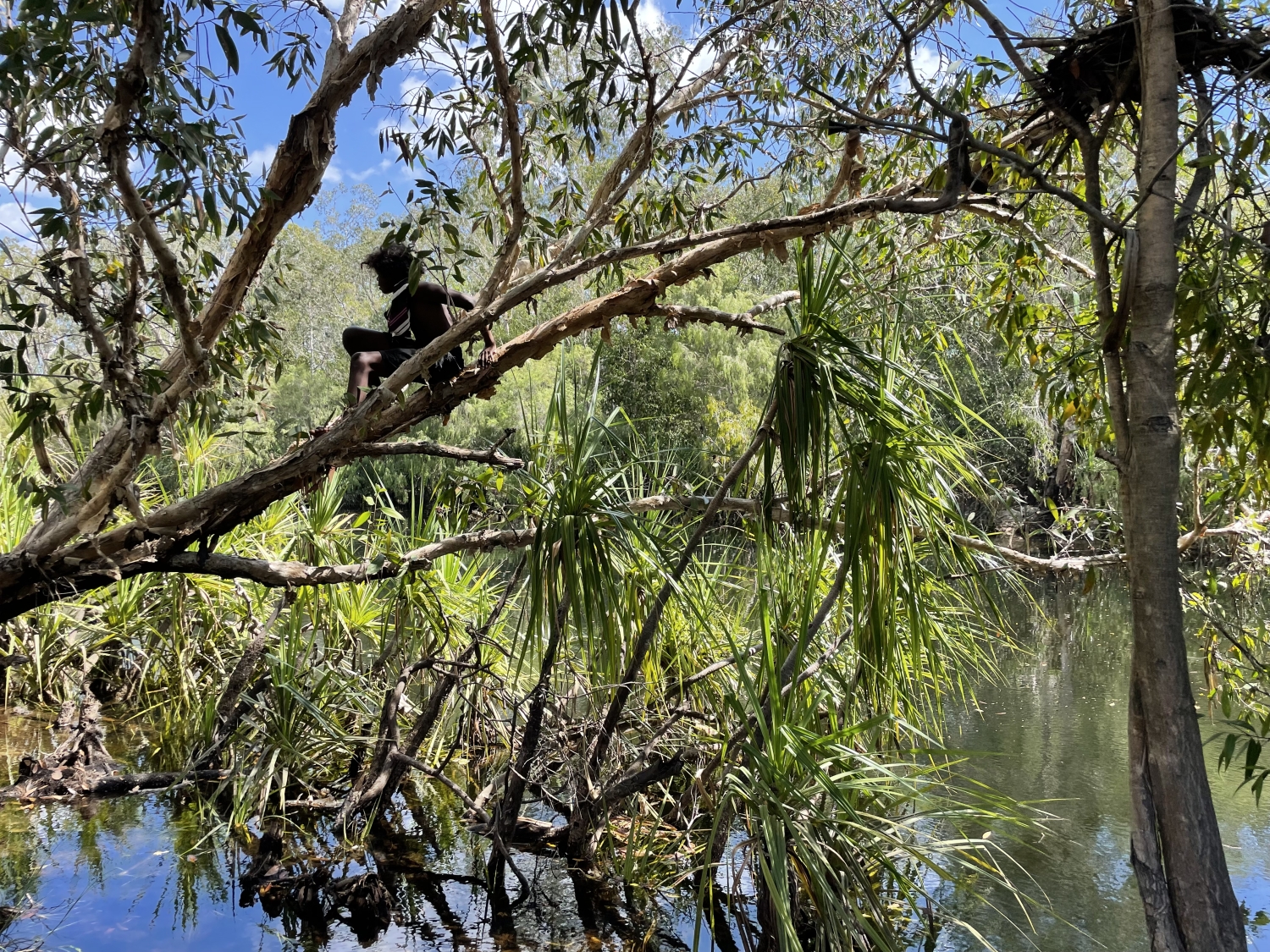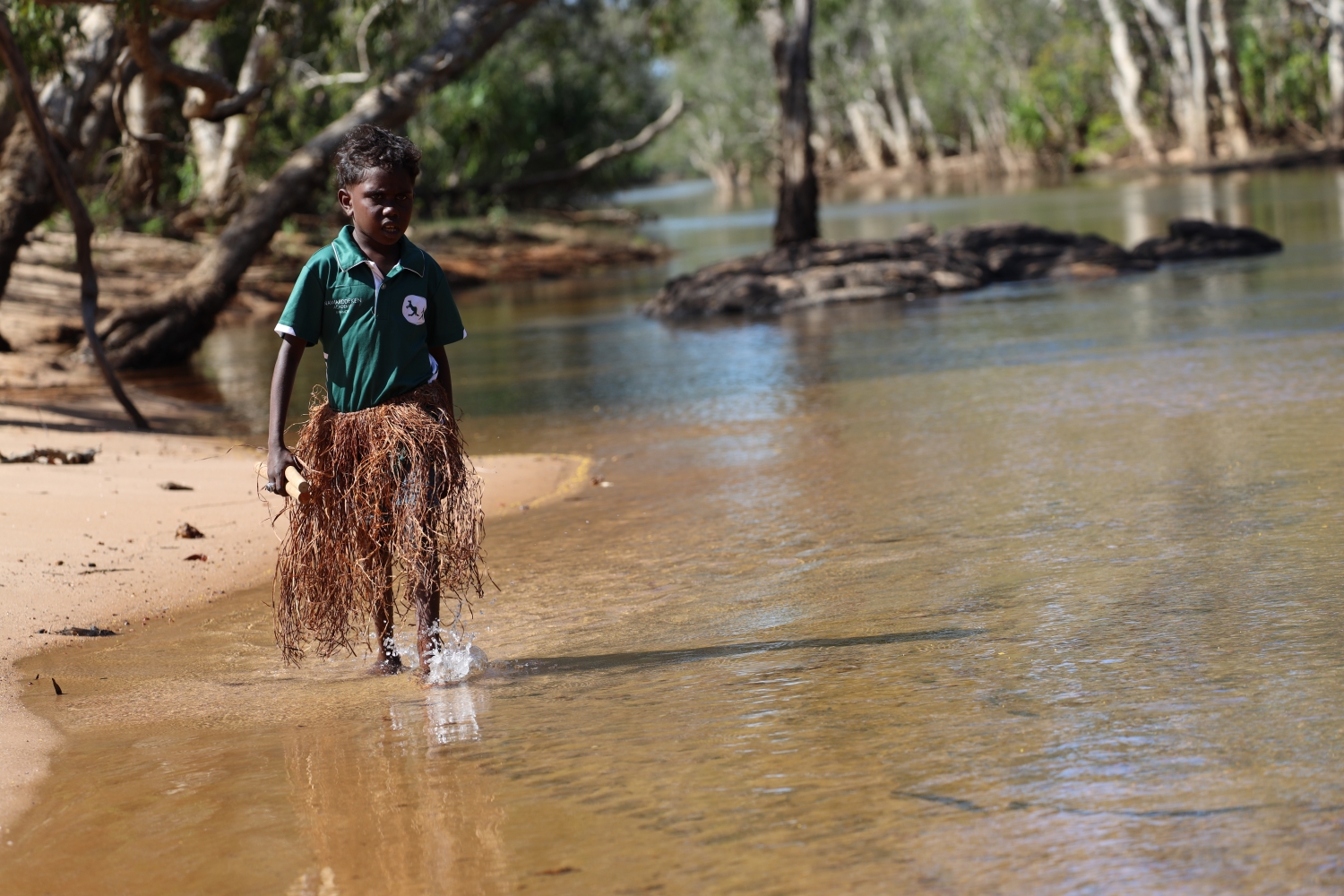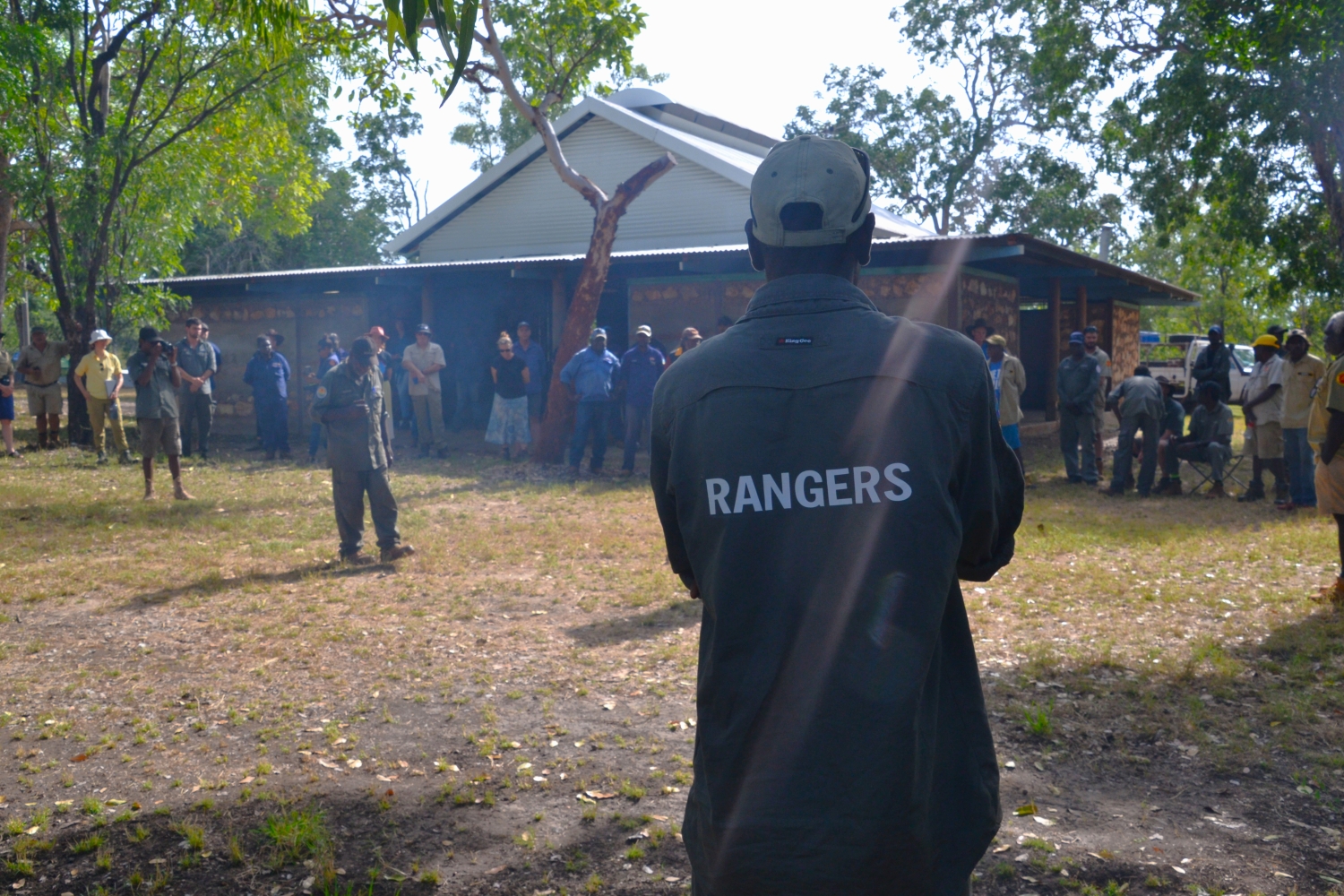The Karrkad Kanjdji Trust (KKT) was founded by Traditional Owners of the Warddeken and Djelk Indigenous Protected Areas (IPAs). The founding intention behind KKT’s design was, and still is, to support First Nations communities to live on and manage their ancestral lands on their own terms and for the long term. This means that each project we support shows how, when First Nations peoples have representation and engagement in the matters affecting them, the outcomes are better.
To address this, senior community members approached KKT and asked for help establishing their own independent school where cultural knowledge could be woven throughout the curriculum and educational experiences could be shaped by Bininj teachers and cultural advisers.
It took almost two years of negotiation for the NT government to accept the Nawarddeken Academy’s registration as an independent primary school eligible for Commonwealth funding schemes. Now, the Nawarddeken Academy has three campuses—the other two at Mamadawerre and Manmoyi—a flourishing Early Learning Program and, at the start of this year, the beginning of high school education. Moreover, the Nawarddeken Academy consistently achieves attendance rates of over 95 per cent across all three outstation communities, eclipsing average attendance rates for First Nations students across the Territory.
“Our kids want to go to Nawarddeken Academy because they’re on their homelands. They’re comfortable in their environment and they feel safe. Sisters, brothers, cousins, all in the same classroom, learning together alongside their families. This is what we’ve fought so hard for.” - Michelle Bangarr, Djungkay for Manmoyi and Nawarddeken Academy’s Cultural Education Advisor
Elsewhere, in Central Arnhem Land, the Mimal Land Management Aboriginal Corporation has grown exponentially following their independence from the regional statutory authority in 2017. From a starting point of around seven projects and six rangers, they now have over 80 active projects, which include robust ranger programs for over 30 experienced men and women rangers.
More recently, they have been working to revitalise the Barrapunta/Emu Springs outstation. This was once a thriving community hub with infrastructure that supported around 40 people to live, work and learn. However, over time, government funding for consistent power and water dried up and, because this infrastructure was government-owned, locals were not permitted to fix it. Combined with the difficulties of accessing supplies and medical services, and the lack of employment opportunities, people gradually drifted back to the larger township of Bulman which left the outstation abandoned and the surrounding Country empty.
When KKT held a Board meeting at Barrapunta in August 2023, Director and Bolmo Dedjrungi clan member Fred Hunter commented that “There should be people living here - I was shocked to walk up the road and see no one living here.”
Today, the Mimal Rangers are working to revitalise Barrapunta and transform it into a temporary ranger outstation and meeting place. The vision articulated by senior members of the Mirradjdja clan is to see the return of people permanently to Barrapunta, to create the conditions which will make possible sustainable livelihoods on country for future generations. They want to conserve traditional land, language and culture while working together with non-indigenous interests to achieve common objectives. With the support of local organisations and leaders, they are now working to achieve this.
“We have continued to be overlooked. We are the minority and we have to fight for everything like education and basic electricity. I hope things will change if we’re all in the one family and on the right track.” - Dr Dean Yibarbuk, KKT Co-Chair and Traditional Owner of Djinkarr
Through these instances and many more, we have seen firsthand the power of creating a space for listening and supporting First Nations peoples to formulate their own responses to the issues that affect them. Furthermore, when these responses are given the resources to be fully realised, there are benefits for Country, culture, the communities themselves and individuals. Evidence shows that communities with strong ranger programs enjoy better environmental, economic, health and educational outcomes; have more role models, higher skill levels, strengthen language and culture; show increased wellbeing and self-esteem for individuals; and lower rates of interaction with the criminal justice system.
With the unanimous support of KKT's Directors, this is one of the major reasons that KKT supports the Indigenous Voice to Parliament. We believe that solutions to the complex challenges continuously faced by First Nations communities are inside those very same communities. We hope that, on the 14th of October, the rest of Australia also recognises this, and that together we can take a small step towards a better future. Regardless of the outcome, we will continue our work in listening, partnering and supporting remote communities in Arnhem Land to realise their visions for the future. We will continue to show governments, citizens and people around the world what self-determination can truly look like in action.


